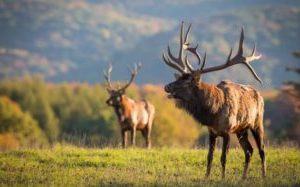
I started my research and was quickly overwhelmed by a dizzying array of rules, units, costs, requirements, lotteries, coupons and other details.
If you aren’t from the West, and aren’t familiar with their game management rules, I’m sure you’ll discover the same feeling.
To help you navigate each state’s costs, license fees, tag availability, preference point protocols, and application deadlines, I have put together a list that outlines all of these details for every major elk hunting destination state in the West:
Arizona
- Cost for Non-Residents – $595
- Non-residents must purchase a hunting license to apply, which is an additional cost of $151.25. A bonus point may be purchased for the cost of the non-resident hunting license, plus an application fee of $7.50.
- Over The Counter Options – There are extremely limited OTC tags available in some units, but the elk population densities are very low in these units and many hunters do not consider them worth pursuing.
- Preference/Bonus Points – Preference points may be purchased July 1 – September 30.
- Applications Due – February 8th, 2021
- Draw results are posted in April
- Website – www.azgfd.com
Colorado
- Cost for Non-Residents – $351-$586
- Over The Counter Options – There are abundant over the counter tags available in many units, especially during the archery season.
- Preference/Bonus Points
- Optional preference points cost $25. Applicants that wish to purchase only a preference point must also pay up front for the price a tag, which will be refunded when draw lottery closes in June.
- Accumulated preference points will expire if the applicant does not apply for a license or purchase a preference point over a period of 5 years.
- Applications Due – April 2nd, 2021
- Draw results are posted in June
- Website – wildlife.state.co.us
Idaho
- Cost for Non-Residents – $416.75
- Non-residents must also pay an additional application fee of $154.75.
- Over The Counter Options – There are several over the counter opportunities available, as well as a number of first come-first serve leftover tags, which go on sale in August.
- Preference/Bonus Points – No bonus or preference point system.
- Applications Due – June 5th, 2021
- Draw results are posted in July
- Website – fishandgame.idaho.gov
Montana
- Cost for Non-Residents – $897 (Deer/Elk Combo License)
- Over The Counter Options – There no over the counter tags for non-residents, however residents can purchase leftover licenses, which go on sale in August.
- Preference/Bonus Points – You can only receive a bonus point if you apply for a license. There is no “point only” system.
- If an applicant does not apply for a license or purchase a bonus point for 3 consecutive years then all the applicant’s previous points will expire.
- Applications Due – March 15th, 2021
- Draw results are posted in April
- Website – fwp.mt.gov
Nevada
- Cost for Non-Residents – $1,200
- Non-residents must also purchase a general hunting license to apply, which is an additional cost of $142.
- Over The Counter Options – None
- Preference/Bonus Points – A bonus point may be purchased for $15, but also requires the purchase of a general hunting license ($142).
- Applications Due – Mid-April, 2021 (Exact date TBA)
- Draw results are posted in June
- Website – www.ndow.org
New Mexico
- Cost for Non-Residents – $354 – $789
- Non-residents must also purchase a general hunting license to apply, which is an additional cost of $65. However, the license fee is refundable if a tag is not drawn.
- Over The Counter Options – None
- Preference/Bonus Points – None
- Applications Due – March 20th, 2021
- Draw results are posted in June
- Website – wildlife.state.nm.us
Oregon
- Cost for Non-Residents – $500.50
- Non-residents must also purchase a general hunting license to apply, which is an additional cost of $140.50.
- Over The Counter Options – Over the counter tags are available in many units.
- Preference/Bonus Points – A preference point may be purchased for $8, but also requires the purchase of a general hunting license ($140.40).
- Applications Due – May 15th, 2021
- Draw results are posted in June
- Website – www.dfw.state.or.us
Utah
- Cost for Non-Residents – $393 – $1,505
- Non-residents must also purchase a general hunting license to apply, which is an additional cost of $65.
- Over The Counter Options – There are some over the counter tags for the general elk season, which go on sale in July.
- Preference/Bonus Points – A bonus point may be purchased for $10, but also requires the purchase of a general hunting license ($65).
- If an applicant does not apply for a license or purchase a bonus point for 3 consecutive years then all the applicant’s previous points will expire.
- Applications Due – March 1st, 2021
- Draw results are posted in May
- Website – wildlife.utah.gov
Washington
- Cost for Non-Residents – $497
- Over The Counter Options – Washing does offer some over the counter tags to non-residents, via designated “eastern” and “western” tags.
- Preference/Bonus Points – A bonus point is earned for each year that the applicant does not successfully draw a tag.
- Applications Due – May 26th, 2021
- Draw results are posted in June
- Website – wdfw.wa.gov
Wyoming
- Cost for Non-Residents – $641 – $1041
- Included in these costs is a non-refundable application fee of $15, and a preference point fee of $50.
- Over The Counter Options – There are no over the counter tags available to non-residents, but leftover licenses are offered on a first come-first serve basis in July.
- Preference/Bonus Points – A preference point is earned for each year that the applicant does not successfully draw a tag.
- Individuals that don’t apply for a tag may purchase a preference point for $50, from July-September.
- If an applicant does not apply for a license or purchase a bonus point for 2 consecutive years then all the applicant’s previous points will expire.
- Applications Due – January 31st, 2021
- Draw results are posted in February
- Website – gf.state.wy.us
Let’s take a look at 5 factors we should consider when choosing which state we should plan our elk hunt in…
1 – Cost & Convenience
How easy is it to get a tag, and how much is it going to cost me? That is the question that almost everyone asks first. And rightly so.
2 – Getting There
When it comes to hunting elk in the mountain west, the biggest logistical challenge for flatlanders (those of us from the Midwest and Eastern portions of the US), is without a doubt – travel. Getting a tag is one thing; figuring out how to logistically plan a long-distance hunt is another.
Are you going to fly or drive?
How will you pack all of your hunting gear if you fly?
And how will you send back hundreds of pounds of elk meat and an elk rack?
How will you get to the mountains from the airport?
How long is it going to take to drive?
Do you really want to spend 4 days of your trip in a vehicle if you can only get 10 days off of work?
Will the drive wear you out so bad that you aren’t ready to attack the mountains when you get to the trailhead?
Do you even have a vehicle that is capable of a hauling all of your gear halfway across the country, and then is able to get you into the mountains?
How much will gas cost? The questions are numerous.
3 – Population & Popularity
What is the elk population like in the areas that you want to hunt? You, as a non-resident, likely don’t have time to pre-scout areas much. So you want to go somewhere where there is a lot of elk, right? Of course! But so does everyone else.
4 – Trophy Potential
What type of elk are you trying to kill?
Do you want a certain caliber of bull?
Will you be happy with a cow?
If you are looking for trophy potential, then you should choose your state and tag carefully. More than likely you are going to need to play the lottery game.
If you want to give yourself the best chances of harvesting a trophy bull, then you should probably skip over the counter tags and begin building points in key states.
5 – Terrain & Topography
Far too many flatlanders plan their western hunts without considering the variety of terrain and topography that they have the possibility of hunting. Not everyone is capable of chasing elk at 10,000′ in the Rockies, nor should they think that they have to do so.
Compare states like Idaho, New Mexico, and Washington – each have vastly different landscapes to offer when compared to one another, and even a variety within their individual state.
Do you want to hunt high mountain meadows, dense forests, canyonlands, or another type of terrain? Consider your options.
Okay, So What Do You Do?
Each of us have different expectations, goals, budgets, schedules, and capabilities, so each of us should choose our elk hunting state with careful consideration. Although a couple of states are considered the best and easiest states for non-residents to hunt, that doesn’t mean you should limit yourself to these states.
In fact, it makes a case for the opposite – maybe you would have better luck by avoiding what is popular.
I can’t tell you where to hunt, but I can tell you why I chose Colorado.
For my hunting style and goals, the decision was easy – in September I will be headed to Colorado!
Why Colorado?
The decision to hunt Colorado came down to three factors – cost, convenience, and transportation. Colorado’s non-resident elk tags are some of the cheapest in the West, and there is a plethora of tags available over-the-counter (OTC) for a variety of game management units.
I committed to making this trip happen in 2020, which meant that I didn’t want to play the “wait and see” game that comes with trying to draw a lottery tag. I wanted to know that I could get a tag for sure, so an OTC tag in Colorado is a great choice for me.
There are many other states that have affordable, guaranteed OTC tags, but none of them are as close to me as Colorado.
I decided that I wanted to drive for this trip, so distance is a critical factor to consider. Driving out to Idaho, Washington, or another state with OTC tags just wasn’t as practical as choosing to hunt in Colorado. A 15-16 hour drive is long enough for me!
The Bad News
Because Colorado has some of the cheapest, most accessible tags, and is the closest state to hunters from the Midwest and east coast, Colorado is very popular with non-resident elk hunters – which means that the biggest downside to choosing hunt elk in Colorado is the “competition” from other hunters.
People love cheap and easy, and although elk hunting neither cheap nor easy, Colorado is one of the cheapest and easiest states to hunt.
The good news is the bad news.
What’s Next?
Choosing is a state is only the beginning! Once I decided to hunt Colorado I had to pick one of the dozens of game management units (GMUs) to hunt. Stay tuned for another article that outlines everything to consider when deciding on a hunting unit.


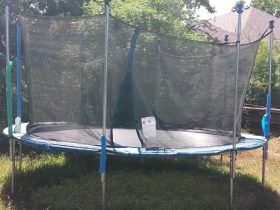


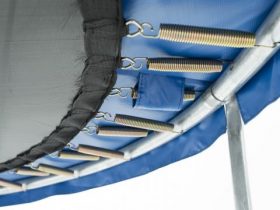
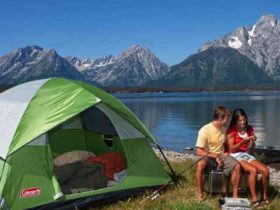

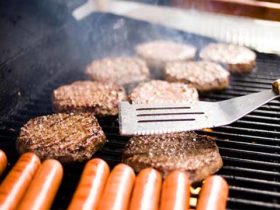
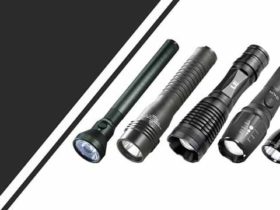
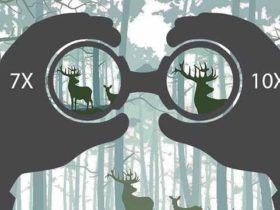
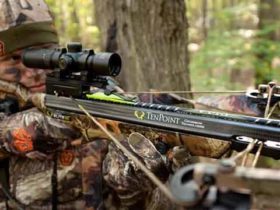
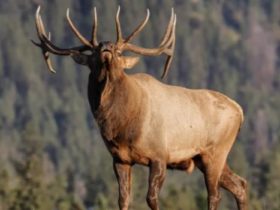
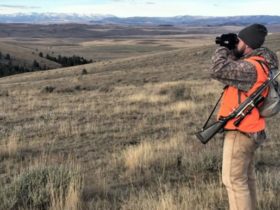
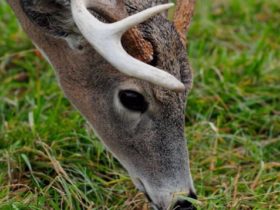
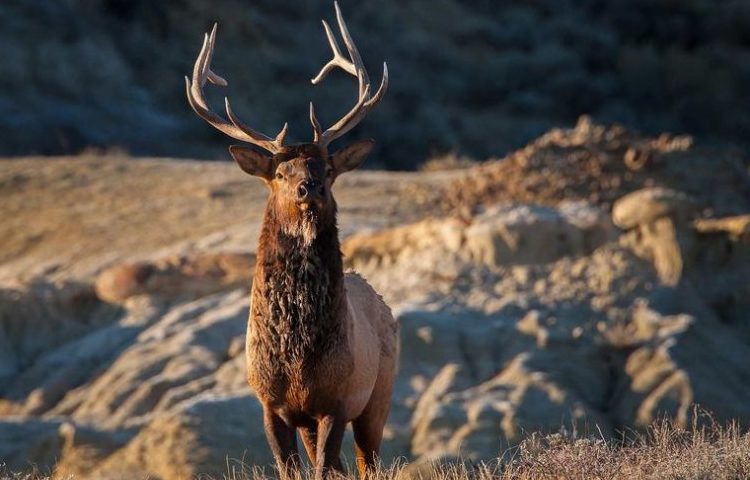
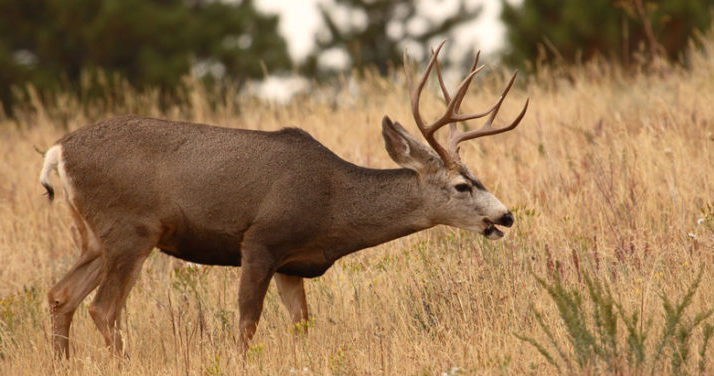
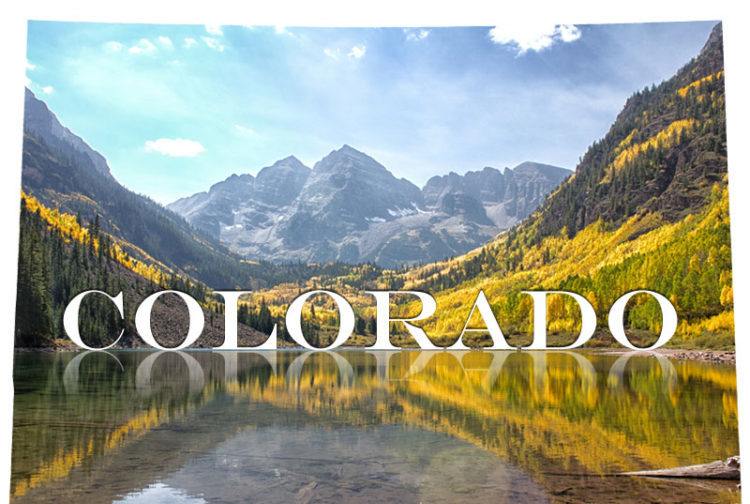




Leave a Reply
View Comments